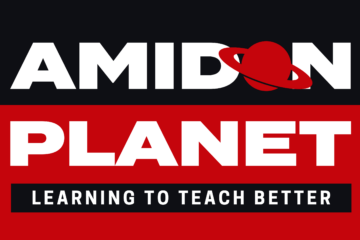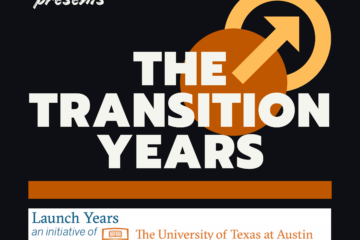Amidon Planet Podcast E033: Design of Virtual Field Experiences with Amanda Milewski and Joe Sweeney
Education is design for learning
Halverson & Halverson
During our current circumstances with COVID-19 a shift has happened with regard to technology and the way we view technologically mediated interactions. In other words, a Zoom meeting minus the 30 minute commute is not so bad. But why pick Zoom? Why not Skype, Google Meet, or FaceTime? What goes into deciding what technologies are used, and how to use them to foster a desired outcome?
In the world of teacher education, or teaching teachers how to teach, we are also looking to technology in expanding out ideas about how to do such work effectively. Pre-COVID-19, Amanda Milewski, Joe Sweeney, and I wrote an article about using virtual field experiences to create on-ramps to teaching, or providing intermediary experiences to get pre-service teachers up to speed before entering a live classroom. In the article, we provide a framework for how to consider different technologies for addressing specific goals in teaching teachers. During COVID-19, where the viability and sustainability of in-person field experiences comes into question, this article has taken on a new life in helping teachers of teachers intentionally select technologies to supplement or replace in-person placements for their teacher candidates. Listen in as we discuss the article, what we learned from it and how we have put those learnings into action.
Enjoy!
Click here to subscribe via your favorite podcast provider.
Links
Mississippi Teacher Corps – Program mentioned by Dr. Sweeney
Shop the Amidon Planet Store (to get yourself a t-shirt, hoodie, or coffee cup) or the Amidon Planet Book Store to support the podcast!
Subscribe to the Amidon Planet Download – a brief periodic email containing teaching resources and updates from Amidon Planet.
Articles
Milewski, A.M., Herbst, P.G., & Stevens, I. (2020). Managing to collaborate
with secondary mathematics teachers at a distance: Using storyboards as a virtual place for practice and consideration of realistic classroom contingencies. In Teaching, technology, and teacher education during the COVID-19 pandemic: Stories from the field. Open access: http://www.learntechlib.org/p/216903/?fbclid=IwAR3p2_JSa7_gms-biQfJ17GlQldGFVTA4Qyqzh6o3r4Jb3NTjx0xlHvHExw
Herbst, P.G. & Milewski, A.M. (2020). Using StoryCircles to inquire into the social and representational infrastructure of lesson-centered teacher collaboration. In Borko, H. & Potari, D. (2020) Proceedings of the 25th International Congress Mathematics Instruction. (pp. 629 – 636). Open access: http://icmistudy25.ie.ulisboa.pt/wp-content/uploads/2020/05/ICMIStudy25Proceedings.pdf
Herbst, P., Boileau, N., Clark, L., Milewski, A.M., Chieu, V., Gürsel, U., & Chazan, D. (2017). Directing focus and enabling inquiry with representations of practice: Written cases, storyboards, and teacher education. In E. Galindo & J. Newton (Eds.) Proceedings of the Annual Meeting of the PME-NA, October 2017. Indianapolis, Indiana. Open access: https://deepblue.lib.umich.edu/handle/2027.42/143005
Milewski, A.M., Herbst, P., Bardelli, E., Hetrick, C. (2018). The role of virtual spaces for professional growth: Teachers’ engagement in virtual professional experimentation. Journal of Technology and Teacher Education. 26(1), 103-126. Open access: https://www.learntechlib.org/p/181094/

